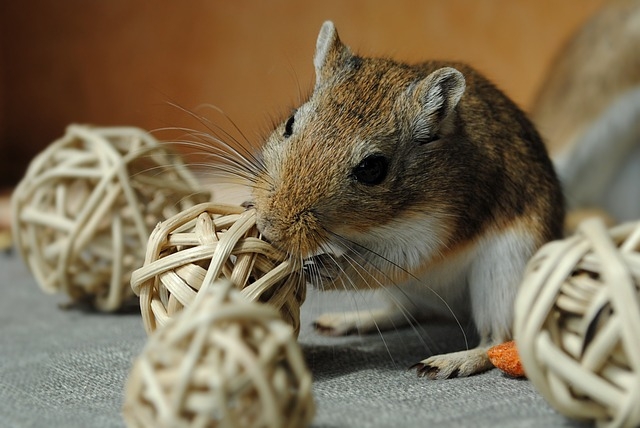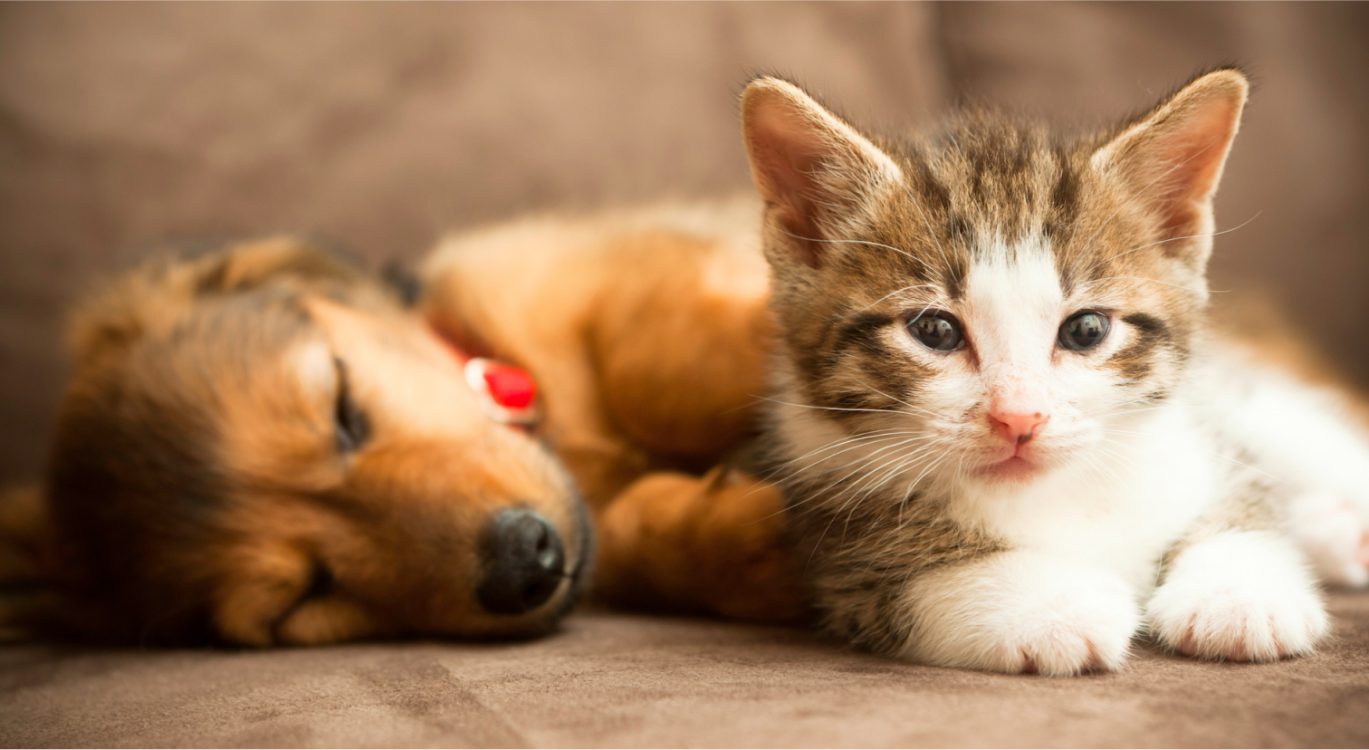
Gerbil
Gerbils are inquisitive and active animals who love to dig and burrow.
On this page:
The most common breed kept as pets are Mongolian gerbils.
Before you get gerbils, it is important that you understand how to care for them properly. We’ve put together lots of information and advice to help you.
Never pick a gerbil up by their tail as this can cause serious injury. When gerbils feel that they’re in danger, they can shed the outer layer of skin and hair, leaving the bone and muscle exposed. Pulling, grabbing or lifting by the tail can also cause it to break off. Any tail injuries require immediate veterinary attention.
Accommodation
In the wild, gerbils burrow underground and live in a network of tunnels. Therefore, they need a large, deep glass tank with a secure mesh wire lid.
In the wild, gerbils dig deep burrows. Therefore, they require a significant amount of substrate to allow them to display their natural behaviours. As such, we do not recommend keeping gerbils as pets unless this can be accommodated. The base of the tank should be filled with organic soil to a depth of at least 20 cm, making sure that they still have at least 10 cm above ground to move around in. If gerbils are not able to burrow properly, they often display signs of mental distress, such as constant scrabbling in the corners of their cages.
Gerbils naturally build their sleeping areas in burrows and tunnels underground. They like to forage for bedding materials above ground and pull these down into the nest. Place a small pile of soft bedding hay on the surface of the soil every couple of days and leave your pets to get to work.
Gerbils should never be kept on wood shavings or sawdust as these can cause breathing problems and lead to parasite infestation. Gerbils housed on shavings will often suffer from very greasy coats as this material does not protect their coats in the way that natural soil or peat would.
Other information
They are very sociable animals so they should be kept in same sex pairs or groups for company.
Removing soiled bedding every couple of days will prevent a build-up of ammonia. You will need to clean out dirty areas and to refresh the bedding and the other items in the cage at least once a week. The whole tank should be thoroughly cleaned every three weeks using a pet-safe disinfectant.
Diet
Gerbils need to be fed a complete dry food to ensure they are getting the right balance of nutrients. Always follow the serving recommendations on the packaging. Try scattering small amounts of dry mix on the surface to encourage natural behaviour and prevent them from over-eating.
Adding a variety of treats to your gerbils’ weekly diet not only keeps feeding interesting for them but it also provides essential vitamins and minerals that your gerbils require. They enjoy boiled eggs, fresh grass and dandelions, fruits such as pear, melon and apple as well as vegetables like cucumber, carrot and pumpkin. In the wild they would survive on a diet of mainly seeds but too many can cause obesity in pet gerbils. Giving them fruit tree wood to gnaw on also helps to keep their teeth at a suitable length.
Gerbils also need plenty of fresh water so make sure you clean and refill their water bottle every day.
Handling and socialisation
Gerbils can be handled but are quite fast. Time should be spent with them daily. You can hand feed them natural treats to help them get more confident around people. You should also allow them to come out of there accommodation to investigate a secure place.
Never leave your gerbils to free-roam around other pets. Make sure an adult is there to supervise them when out of their enclosure, especially around young children as they can nip if they feel threatened. Furthermore, gerbils have very sensitive tails and children must be taught never to grab or pull their tails as this can cause serious injury.
Allow your gerbils to investigate your hands in their own time. Offering them a tasty treat can encourage them to bond with you.
Never handle your gerbil at a height as they could fall and be injured. Handle them over a table or whilst sitting down.
To hold your gerbil safely, gently cup them in both hands, fully supporting their body.
Exercise and enrichment
Keep your gerbils physically and mentally occupied by providing them with objects that add interest and variety to their environment.
Gerbils must be able to dig. This is a natural behaviour for them therefore, they need a very deep substrate to burrow into.
Plastic tunnels and toys are not ideal for gerbils as they can destroy them very quickly and ingesting the plastic can be dangerous. Instead, you can use cardboard tubes, wooden tunnels and cereal boxes to make inexpensive enrichment items for your gerbils to explore. Try hiding tasty treats and small amounts of bedding materials around their enclosure, in tunnels or a small ceramic plant pot. Your gerbils will enjoy searching for them and scurrying back to their underground burrows.
Gerbils recognise each other by scent and will mark their territory using their bellies and feet. They may also use urine and faeces. Adding objects they can scent mark, like a large stone, helps them display this natural behaviour.
Remember to change the enrichment items around regularly to keep your gerbils mentally and physically stimulated and remove any damaged items that could cause injury.

Support us from £5 a month
Every £1 helps us rescue, protect and advocate for Scotland’s animals.